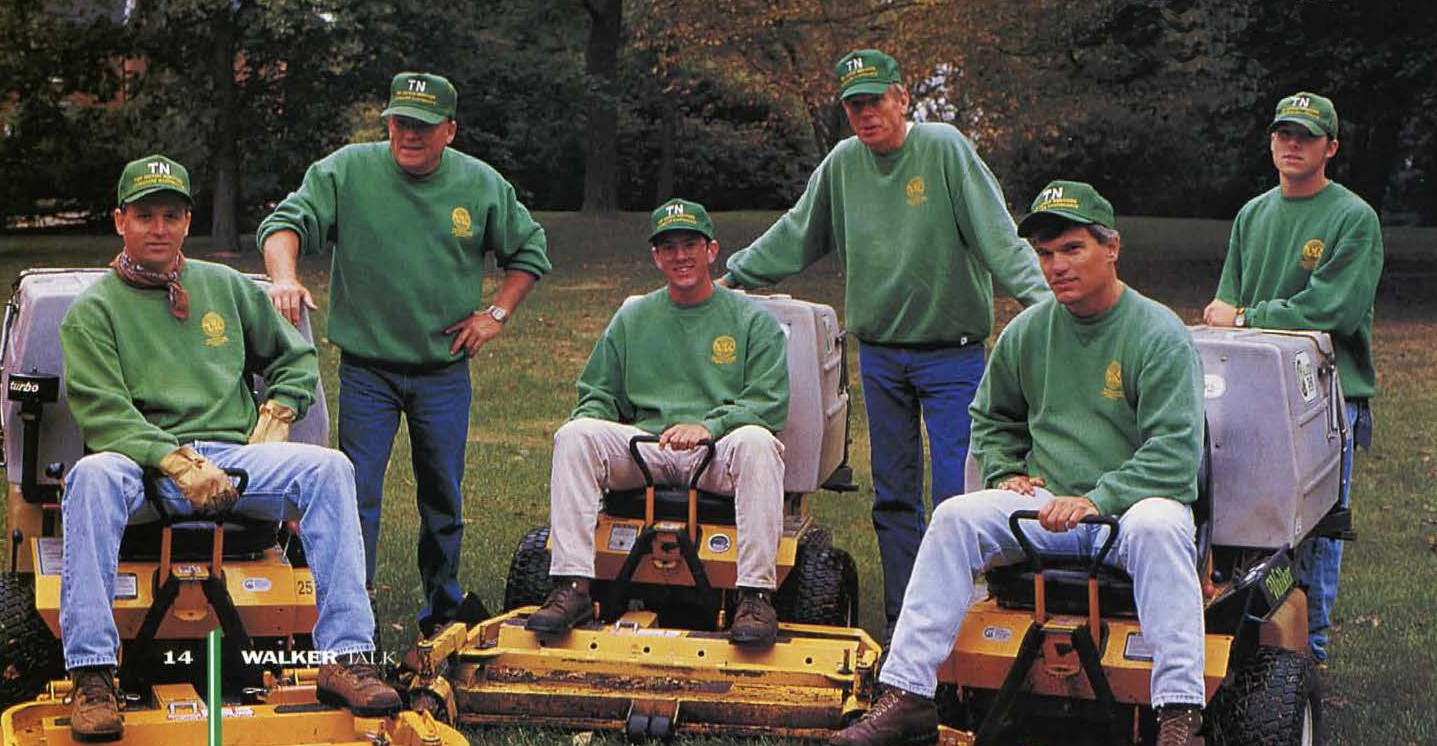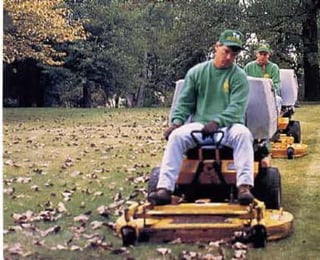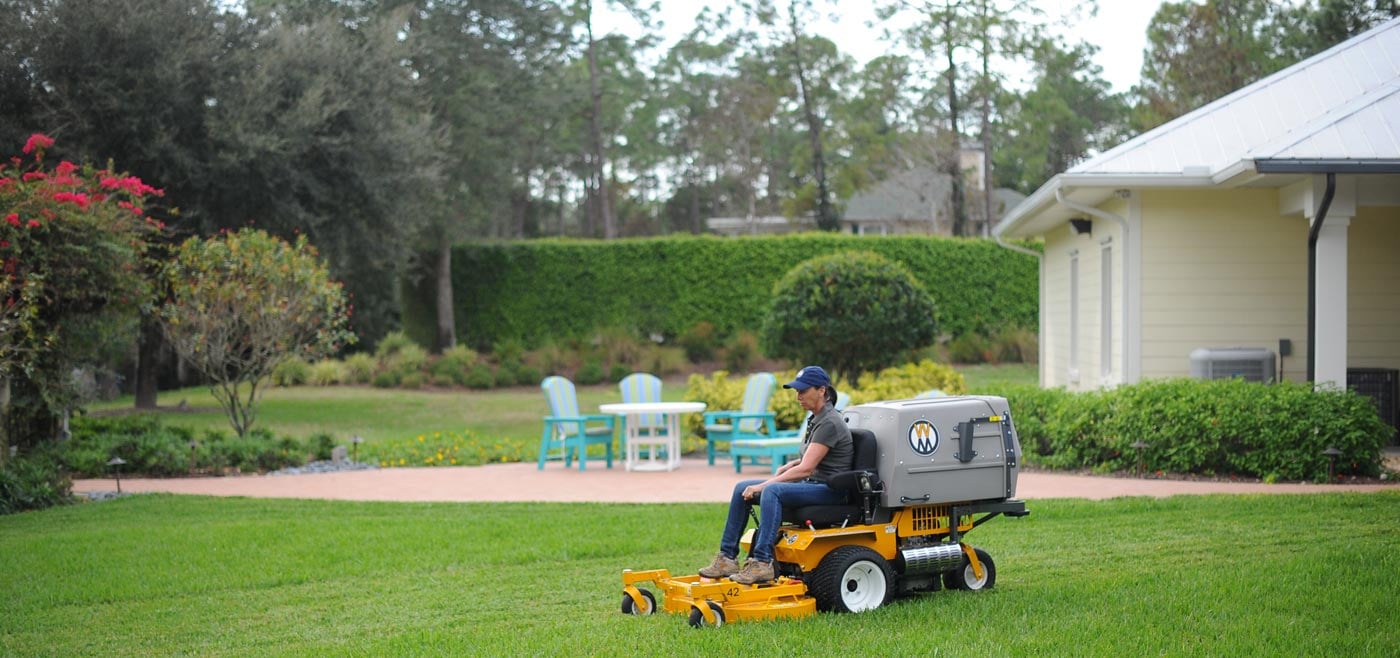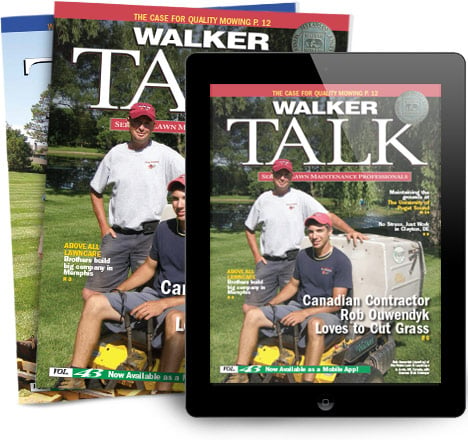That’s a question Burdette Mills asked himself 15 years ago when he started his landscaping company, Top Notch Services in Granville, Illinois. He wanted a niche. He wanted to provide the best service possible to select customers.
Of course, that was only a pipe dream for a new contractor looking for work. Finding work wasn’t easy when his equipment lineup included a car, snowmobile trailer and push mower, with a shovel and rake handles hanging out of the car windows and a tiller ducked away in the trunk.
It was a strange sight, Mills admits, but he was persistent. He wouldn't take no for an answer and he would never say no to any job. Laid off from his position as a purchasing agent for a grain company, he wanted two things from his next job: enjoyment and a degree of security.
Mowing Lawns was as close as he could get to his first love, farming. And regarding security, operating his own business gave him the opportunity to fashion his own future. Over the years, a relatively simple philosophy has carried him through. One might call it a three-step approach to success and happiness in the lawn maintenance business.
- Step one: Don't get greedy, a.k.a., learn to say no.
- Step two: Keep employees busy year-round.
- Step three: Don't take current customers for granted. In other words, do a good job every time you show up on the property.
Step One: Forget the Greed
Operating with seven employees and two maintenance crews during the peak season, Top Notch Services caters primarily to high-end residential customers and a select handful of commercial properties. In addition to maintenance and landscape installation/renovation, Top Notch will do just about anything for current customers. In the off-season, crews can be found painting homes, building fences, even repairing buildings. The service orientation not only keeps customers happy, it also keeps crew members employed year-round.

As most lawn maintenance professionals have discovered over the years, excellent work is usually rewarded by more work. The issue quickly becomes one of how much work is too much.
"Contractors really have two choices today," says Mills. "They can either get much bigger and hire a lot of people, or remain small." Both approaches have their advantages and disadvantages, he adds. Big companies constantly struggle with employees and maintaining a high quality of work. Smaller companies have to deal with the challenge of making ends meet with a limited number of customers - when overhead and other costs continue to rise.
Mills chose the latter route. His 65 to 70 accounts, mostly high-end homes, rarely complain about price. But they expect the best service their money can deliver. Like other contractors with a similar philosophy, Top Notch doesn't advertise. In fact, you won't find its name anywhere, even on the sides of company trucks or on the enclosed van. The only form of advertisement is its work, and the satisfied customers who spread the word to neighbors and friends. In most cases, this approach also results in more desirable new accounts.
"We really don't want any more work so there is no point in putting our name on everything," Mills says.
This rather unusual approach, in combination with charging for and delivering "top notch" work, helps keep the business manageable. Instead of running around delivering bids and trying to find ways to cover new accounts, Mills has time to operate the business, or, as he says, time to think about where the business is going. Keeping the business small also gives son Jeff enough latitude to do a great job with his two mowing crews.
The day Walker Talk visited, Top Notch crews were maintaining one of their high-end properties.
"We use the GHS system and stripe all our properties," tells Mills, looking out over the huge lawn area. "It's a look other companies without Walkers just can't deliver."
Top Notch purchased its first Walker, a 16-hp unit with a 42-inch deck, in 1988. Since then, it purchased two more, a 20- and a 25-hp model, both with 48-inch GHS decks. They're all operating. In fact, says Mills, "They all purr like kittens, including that first mower which has more than 2,500 hours on it. It's on its second engine and second set of tires. But it's still there plugging away.
“I’m considered a hard-sell in town, in part because I understand equipment. I was originally attracted to the Walkers because of their ease of maintenance. But they're also so easy to operate. All you have to do is move the steering controls 1/2 to 1 inch. With other machines, you get fatigued just by moving your arms."
 Mills also claims the Walkers have reduced his mowing times significantly, allowing him to operate with less equipment and with less employees. In fact, on one major cemetery they maintain, the addition of one Walker has reduced mowing time from roughly three days to 12 hours.
Mills also claims the Walkers have reduced his mowing times significantly, allowing him to operate with less equipment and with less employees. In fact, on one major cemetery they maintain, the addition of one Walker has reduced mowing time from roughly three days to 12 hours.
But it's the look of the cut that really pleases Top Notch and its customers. Mills attributes the quality of cut to the GHS system, and to a deck design that makes the fine grass in the area stand up.
"The vacuuming action of the deck really pulls the grass off the ground," he says. "The result, in combination with using sharp blades, is a neat, clean cut."
Having good equipment and keeping it maintained is a tough sell for some lawn maintenance companies, Mills adds. The reason? It cuts into a company's top-end money. As difficult as it is, contractors need to take the long view, and invest in both equipment and employees.
''Anyone can mow lawns," Mills emphasizes. "What separates us from the competition is our equipment and the people who operate it."
Step Two: Keep Employees Busy
One of the downfalls of any lawn maintenance company, large or small, is the inability to employ workers year-round. Top Notch extends its season to 11 months, staying busy with leaf and yard cleanup through the second week of December, and then maintaining equipment, doing odd jobs for customers and plowing snow until the lawn maintenance season begins again the following spring.
But busy is one thing. Keeping them satisfied is another. "We try to avoid laying people off," tells Mills. ''In most cases, we also pay them as well if not better than other lawn maintenance companies in the area."
The company also keeps overtime to a minimum and tries to engender a family atmosphere.
All of the above are easier to accomplish when growth is contained, notes Mills, adding that service and customer communication also benefit from keeping the business under control. Smaller companies also have fewer employees to satisfy and, with a tight niche, they can work to find ways to keep employees busy practically all year long.
Again, he emphasizes, "We're not trying to get rich in this business. We're just trying to make a good living for everyone involved, including my son and our employees."
Step Three: Keep Customers Satisfied
After Top Notch crews finish with their large project, they move up the street a couple of houses. Mills gets out of his truck and looks around.
"I can remember the day when we longed for these properties," he relates. "Now we have most all of them in this neighborhood.
"My experience has been if you do good work, it's relatively easy to obtain new properties. And it's easy to get excited about doing a property like this." He points to a corner property with beautiful English gardens and brick walkways. The challenge, he adds, is sustaining that high level of enthusiasm and quality.
This owner/operator attributes much of his success to consistency, the ability for crews to maintain a high standard each and every time they mow or maintain a property.
"My son Jeff has been in the business since 1987 and he is really more particular than I am," says Mills, "In fact, he complains that I don't keep my lines straight enough when I use the Walkers.
"He's also very good with customers. I thought I had a good rapport with them, but Jeff has developed an even better relationship."
Operating procedures also work to keep properties maintained to their fullest and customers satisfied.
The two mowing crews, for example, start out the morning working together. They follow one another ''hop scotching" jobs until they get to a larger property. There, they combine efforts, then veer off again to tackle smaller properties individually. The practice allows them to finish up a little faster on big properties and still pay attention to details. And it's not overkill on smaller properties.
"Our customers also have lush, healthy landscapes," Mills notes. “The grass leaves behind plenty of clippings during the growing season, and in the fall the trees drop plenty of leaves. Two crews working together just dispatch the debris in a more timely fashion."
He glances over at his Walkers. The mowers are operating in tandem with the lead mower picking up the majority of the debris while the other is delivering the finishing touch.
"We sometimes mow this way in the fall," Mills explains. "It's like a value-added service to our customers, giving their properties a neat, clean look. The procedure takes a little more time. But again, our customers appreciate the effort."
No, this way of mowing isn't for everyone. And neither is his way of doing business, Mills admits. In fact, he knows he's about as far from the consolidation trend as a lawn maintenance professional can be. But big isn't his bag - better is. And he frankly thinks he is better off for it.




 Site Search
Site Search



